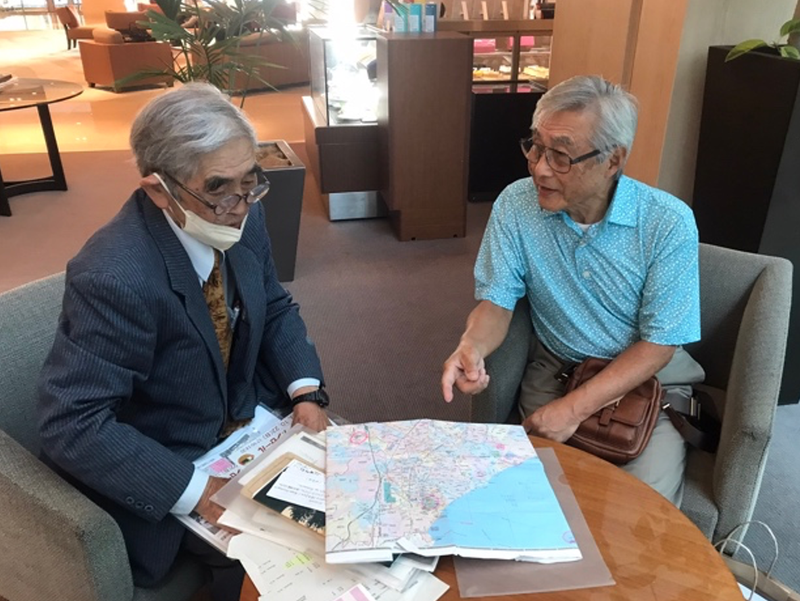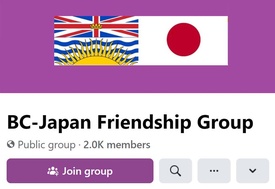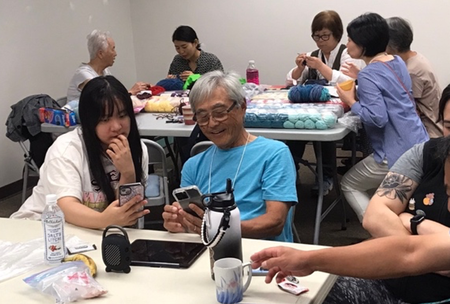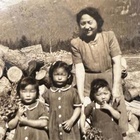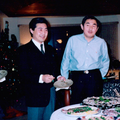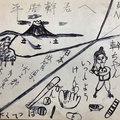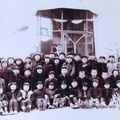From 2019 Shig and Akemi gradually started to retire from their grocery chain business. Their daughter’s husband joined Fujiya after graduating from university. At first he was doing various jobs such as cutting up the fish, and gradually became more involved in the management and eventually took charge of the company. Due to Shig’s health problems, he and Akemi have now retired completely from running Fujiya, leaving their son-in-law in charge.
Miki’s retirement was a gradual process as he ended his various consulting roles over a period of several years. In some cases, the companies he was representing were bought out by larger companies. His retirement from business finally became complete in 2022, at the age of seventy-eight.
As he retired from his various business roles, he became more active in the Japanese Canadian community in Vancouver. Around 2015 he started becoming increasingly involved with the Shiga Prefectural Association (kenjinkai), partly through the influence of his brother Shig who was very active in the association and the Japanese Canadian community in Vancouver. Shig was also a major sponsor of various cultural events such as those held at the annual Japanese Canadian festival at Powell Street.
Miki attended the Shiga Prefectural Association picnic and New Year party, the only two events which it was still holding at the time. He realized that the members and leadership were aging. Around 2018, the association officially decided to close down. Miki also noticed that most of the other prefectural associations in Vancouver (with the exception of the Okinawa Prefectural Association) were likewise becoming inactive due to aging of the members and leadership.
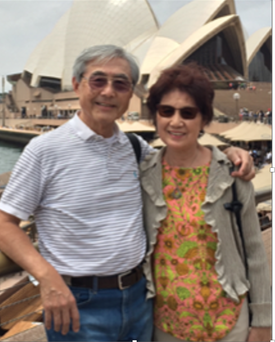
With his marketing background, he tried to think of ways to continue the Shiga Prefectural Association in some form and draw younger people in. He also wished to do something on a larger scale that would revitalize all the prefectural associations in Vancouver and elsewhere. He discussed it with various people including the association leaders. He also shared his ideas with his own children, who advised him to instead enjoy his retirement and do all the things he had been waiting all his life to enjoy such as travelling. However, he felt he had already been enjoying such things during his career and he wanted to do something to contribute to the Japanese Canadian community.
As Miki became more deeply involved in the Japanese Canadian community generally and Nikkei National Museum and Cultural Center in particular, he noticed a gap between two main groups: One group consists of the descendants of the early Japanese Canadian pioneers who experienced uprooting, confiscation of property, incarceration, resettlement, and later the redress movement, etc. The other consists of those who came as new immigrants after the war, especially during the 1970s and later. Miki notes:
That’s a new group of first-generation immigrants. So, there are now two groups. The first group is already up to the fifth generation, maybe more. In the second group, there is now a second generation and even a third generation coming up. But there is no real solid community here (between these two groups). This is a big disadvantage.
Community-wise, the two groups are not very close, and there are several subgroups in the second group. The second group speaks Japanese as their first language, whereas most of the first group cannot speak Japanese.
Miki wanted to help bring the two groups closer together and, as a Japanese Canadian who can speak both languages and has close ties to both groups, he felt that he and other bilinguals like him could play a useful role in this regard. So, he set out to revive the Shiga Prefectural Association and also do something on a larger scale with the leaders of the other prefectural associations.
He first tried to use Facebook as the new communication medium to this end, but soon realized that many elderly Japanese Canadians and prefectural association leaders did not have experience using Facebook and other Internet media.
He also felt the need to increase communication between the Shiga Prefectural Association office in Japan and the members of the branches in various countries. The former does not yet use digital media, relying instead on a hard copy magazine (written in Japanese which many young Japanese Canadians cannot read) that it sends to its various branches.
Miki visited the association leaders in Shiga prefecture around 2019 to inform them about his desire to help revive the branch in Vancouver. He encouraged them to go digital and add Facebook to their communication media in order to attract the interest of younger people both in Japan and overseas.
For a time, Miki kept trying to start a new umbrella organization for all the prefectural associations in Canada, using Facebook as the basic medium of communication. However, these efforts continued to be hampered by the limited SNS literacy among many of the elderly members and bureaucratic issues. His efforts were further complicated by the Covid pandemic, so he temporarily abandoned his efforts to start a large-scale umbrella organization and decided to instead focus on improving communication among the grassroots Japanese Canadian community and non-Japanese Canadians who are interested in Japan.
He renamed his Facebook group as the BC-Japan Friendship Group and began to gather new members from various backgrounds. Members can utilize this group to share various kinds of information related to BC and Japan. So far it has turned out to be Miki’s most successful initiative and is growing more rapidly than expected. It includes members from very diverse backgrounds including Japanese Canadians, Japanese living in Japan, and a growing number of non-Japanese individuals from various ethnic groups who happen to have an interest in Japanese culture and Japanese Canadian topics.
At the same time, to help promote IT literacy among Japanese Canadian seniors, Miki started some free basic SNS classes for seniors at Nikkei National Museum and Cultural Centre. Originally called the Senior Tech Lounge, it opened in the summer of 2022.
At first it met only monthly but soon increased to twice a month. The number of attendees also increased gradually. Taught by volunteers with IT expertise, the attendees included seniors who had never before used Facebook or even Wi-Fi. Miki hoped that as more Japanese Canadian seniors gained some basic IT literacy, this idea would catch on throughout the Japanese Canadian community and result in more communication both among those related to Shiga prefecture and the Japanese Canadian community at large.
Soon the content began to expand beyond basic IT and SNS training to include a wider range of seminars focusing on various topics of special concern to seniors such as living with dementia, special government programs for seniors, transportation assistance to seniors who can no longer drive, health and general well-being, new hobbies, and so on. Hence the name was changed to Senior Lounge, and the number of participants has continued to increase.
Volunteer recruitment and funding from a variety of sources are secured by the Nikkei National Museum and Centre, and in addition, various staff of the Nikkei National Museum and Centre also drop by to assist Miki and the other volunteers.1
Miki is amazed at the wide variety young people from ethnic groups outside the Japanese Canadian community who are volunteering with the Senior Lounge. Several are from China, the Philippines, and other countries. Some have previously lived in Japan so speak fluent Japanese. Some are in Canada as students, and others as permanent immigrants.
The reasons they volunteer are also diverse. For example, a couple of the Chinese volunteers are interested in learning authentic casual Japanese and want to become translators of Japanese manga into real natural conversational Chinese. One Chinese volunteer is involved in both the Chinese and Japanese Community. She noticed that many of the Japanese community have married outside into other ethnic groups, in contrast to the Chinese community where this is still less common, and she asks Miki about how these cross-ethnic relationships work out for Japanese Canadians. Miki explains:
She’s getting (involved) in the Chinese community and the Japanese Community here…she says it’s very interesting… I tell her how my cousins are married to Chinese, my son is married to a Korean, and my daughter is married to a European. She is really interested in this stuff because you don’t see it that much in the Chinese community yet…so she’s very interested in how we get along.
In this regard, Miki also notes how the Japanese festivals in Vancouver are attracting increasing numbers of people from non-Japanese backgrounds. They are also participating in the activities of the Okinawa prefectural association (which is still going strong) and the BC-Japan Friendship Facebook page that Miki founded. He is realizing that now Japanese Canadian culture is itself becoming a kind of multi-ethnic culture.
On the other hand, he also realizes that most Japanese Canadian young people are not so interested in their own cultural roots, and he often discusses with other elders in the community how to catch the attention of the Japanese Canadian youth. Appealing to the growing attraction of many young people (both with Japanese and non-Japanese roots) to modern Japanese pop culture seems to be a key to this end. Miki notes:
So, in the Nikkei National Museum and Cultural Centre we often talk about this — How are we going to get the younger people. You could almost divide Japanese culture into two — the traditional culture, and the newer ideas that include manga, music, and fashion. We must also include that. And at the same time, we need to pass on at least the basics of what happened to Japanese in Canada.
In my Facebook page (the BC-Japan Friendship Group), I don’t go too heavy into the history, because my concept is, you cannot change history, you have to take it as it is. From there it is more important how you use history. You have to use it for the future so that it does not repeat again. That’s my goal.
In our Facebook page we introduce manga culture, Japanese music, and also Japanese traditional festivals. I know younger people like Japanese festivals. I think they have an interest in kimono too — they want to wear kimono. And the food, you can buy Japanese food anywhere in Vancouver, so they already know pretty well about Japanese food. But then, once they get to the stage where they actually go over to Japan, they might also get interested in temples and other traditional culture.
Regarding his own generation, Miki still feels an urgency to get more of them to learn how to use social media so they can communicate with younger people and access what they are thinking. Many are hesitant to participate in the social media lessons at the Senior Lounge though the number is slowly increasing. Miki notes:
Once they come, they are so appreciative, but some are very hesitant to join because they think they are too old to learn it, and they think they should leave it for young people. But I say, one day all of us seniors, whether we like it or not, will end up in a senior home. When that time comes, social media is one way we can go outside and reach out … if you know this you can communicate with your own children and grandchildren … you can freely connect using Facetime, Facebook, or Line even from your bed!
Looking back over his own life history and that of his family, Miki reflects:
Our family did not have anything monetarily wise. But I think we had lots of love! That’s for sure! I value people most of all. My brother Shig does too. That is the key to our success, to his success. That is the way we were raised. My mother was like that. She never fought with her brothers or sister in her lifetime. She can remember no fighting. I talk to my uncle now. He says the same thing—“I never fight”… And my father taught me the same thing. My mother—she never got mad. That’s what my Dad said. So, I guess that is the way I should act.
Notes:
1. The Nikkei National Museum and Cultural Centre is the program partner. The first year of the program was supported with funds that Miki applied for called the Japanese-Canadian Survivors Health and Wellness Fund. It was the first money that came out of the recent British Columbia government redress to Japanese Canadians. In 2023, it was supported by the Nikkei National Museum and Cultural Centre and the City of Burnaby Community Grant. (Personal communication with Daien Ide, Research Archivist at Nikkei National Museum and Cultural Center).
© 2024 Stanley Kirk


